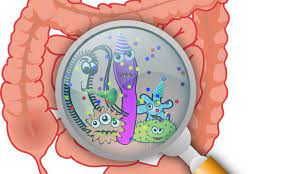
Breaking News
 Quantum walkie-talkie: China tests world's first GPS-free radio for border zones
Quantum walkie-talkie: China tests world's first GPS-free radio for border zones
 RIGHT NOW!: Why was lawyer Van Kessel, of the civil case on the merits in the Netherlands, arrested?
RIGHT NOW!: Why was lawyer Van Kessel, of the civil case on the merits in the Netherlands, arrested?
 PENSION FUNDS PANIC BUYING SILVER - Ratio Below 60 Triggers $50B Wave (Danger Next Week)
PENSION FUNDS PANIC BUYING SILVER - Ratio Below 60 Triggers $50B Wave (Danger Next Week)
 Dollar set for worst year since 2017, yen still in focus
Dollar set for worst year since 2017, yen still in focus
Top Tech News
 EngineAI T800: Born to Disrupt! #EngineAI #robotics #newtechnology #newproduct
EngineAI T800: Born to Disrupt! #EngineAI #robotics #newtechnology #newproduct
 This Silicon Anode Breakthrough Could Mark A Turning Point For EV Batteries [Update]
This Silicon Anode Breakthrough Could Mark A Turning Point For EV Batteries [Update]
 Travel gadget promises to dry and iron your clothes – totally hands-free
Travel gadget promises to dry and iron your clothes – totally hands-free
 Perfect Aircrete, Kitchen Ingredients.
Perfect Aircrete, Kitchen Ingredients.
 Futuristic pixel-raising display lets you feel what's onscreen
Futuristic pixel-raising display lets you feel what's onscreen
 Cutting-Edge Facility Generates Pure Water and Hydrogen Fuel from Seawater for Mere Pennies
Cutting-Edge Facility Generates Pure Water and Hydrogen Fuel from Seawater for Mere Pennies
 This tiny dev board is packed with features for ambitious makers
This tiny dev board is packed with features for ambitious makers
 Scientists Discover Gel to Regrow Tooth Enamel
Scientists Discover Gel to Regrow Tooth Enamel
 Vitamin C and Dandelion Root Killing Cancer Cells -- as Former CDC Director Calls for COVID-19...
Vitamin C and Dandelion Root Killing Cancer Cells -- as Former CDC Director Calls for COVID-19...
 Galactic Brain: US firm plans space-based data centers, power grid to challenge China
Galactic Brain: US firm plans space-based data centers, power grid to challenge China
Drugs can turn your gut microbiome against you – and even kill you

But increasing the quantity of a certain drug you're taking may lead to serious consequences, like in the case of the Parkinson's drug, levodopa (L-dopa).
Gut microbes and L-dopa
L-dopa is a replacement for dopamine commonly prescribed to patients with Parkinson's disease. Considered the most potent medication for the disease, this drug is meant to be converted in the brain into dopamine, the chemical involved in controlling movement. But the effects of L-dopa vary between patients, and human and animal studies have linked the discrepancy to microorganisms found in the human gut.
Each person has a unique composition of gut microbes. In some patients, L-dopa doesn't produce the desired results because certain microorganisms in their gut interfere with the drug's activity. These microbes break down L-dopa before it can reach the blood-brain barrier — the selective membrane that protects the brain from potentially harmful substances in the blood. This interference renders the drug ineffective.
In a recent study published in Science, researchers from Harvard University and the University of California, San Francisco finally put a name to these mysterious microbes. After screening gut bacterial genomes and conducting biochemical analyses, they identified Enterococcus faecalis and Eggerthella lenta as the two microbes that metabolize L-dopa in the gut.
The researchers found that E. faecalis produces an enzyme that converts L-dopa into dopamine, but an enzyme produced by E. lenta then transforms dopamine into m-tyramine. While the effects of this second conversion is still unclear, the researchers believe it may be linked to the side effects associated with L-dopa metabolism outside the brain.



